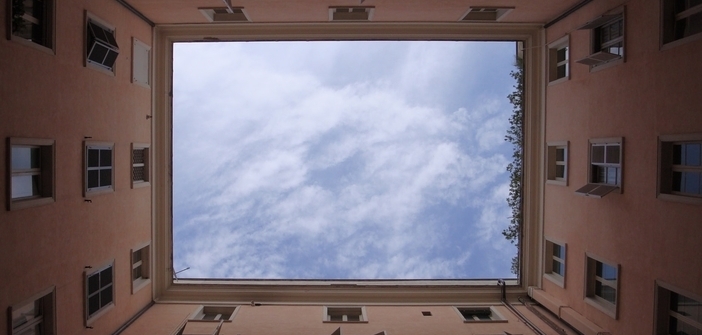On March 14, Prime Minister Édouard Philippe announced the closure of all places “not essential to the life of the country” and those open to the public, to combat the Covid-19 virus epidemic. On Saturday evening, France had one last drink on the terrace before locking itself indoors for an indefinite period.
Terraces, that quintessential French symbol, just like the rooster and the baguette. These lively places where the sound of joyful voices mingles with that of clinking glasses, are like our own melody of happiness. It is there, under the warmth of heaters and blankets passed from knee to knee, that friends, colleagues, and lovers meet to remake the world. Heated surface discussions quickly wiped away by the waiter bringing another round. Our terraces have never been as warm as they have been since they were attacked in Paris one autumn evening. We decided that life would never extinguish there again, that there would always be light. Except that, we didn’t anticipate it would become so urgently necessary to remake the world; we imagined it loomed over us, but we amused ourselves by proceeding blindly. Yes, until the light really went out. On Saturday, March 14 at midnight, the merchants of our happiness stacked the chairs, brought in the tables, and pulled up the awnings before lowering the curtain for good. On Saturday evening, France had its last drink on the terrace before taking refuge by the windows.
Two days later, the President of the Republic, Emmanuel Macron, announced a mandatory lockdown similar to Italy and Spain, already barricaded. For the first time in its history, the vast majority of the French are asked to stay at home while outside, a battle is fought against an invisible enemy more armed than us. “We are at war,” the head of state had stated seriously. On the front lines, healthcare workers, rescuers, law enforcement, drivers, cashiers, farmers… So many souls fighting the battle for us. We, little soldiers, whose only and simple instruction is to stay at home to protect our everyday heroes. So, we decide to open the windows to shout our gratitude, we invade our own balconies to show our support. We replace the reassuring sound of terraces with loud applause, echoing off the concrete walls. Gray blocks usually cold, warmed by millions of hearts in concert. The confined have learned to light the streets by turning on their own lights, restoring sound by singing our anthems in unison. The balcony has become the new place for reunions, communication, and hope where we gather each day, drawn by the rays of the sun, each evening, by the neighbor’s neon lights.
We have been living by the windows for 15 days, sometimes with our loved ones, sometimes alone with our uncertainties and questions. Let us take the time to consider what it means to be alive. Let us question our hearts more than ever and refocus on what truly matters because upon leaving our gilded cages, the battle will have only just begun.


